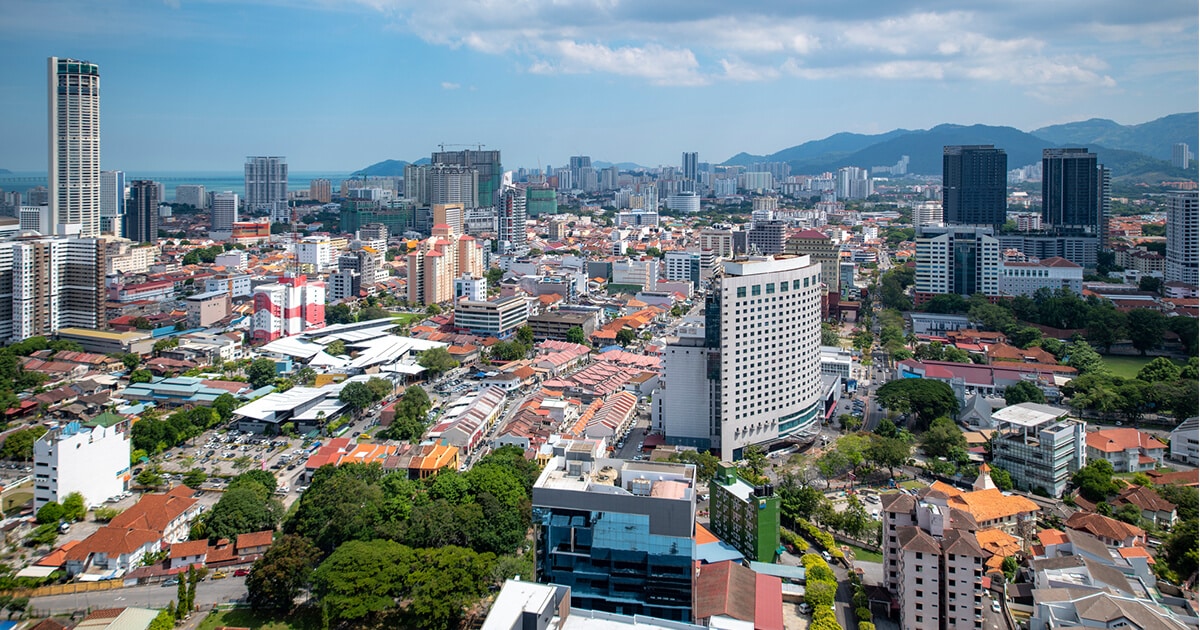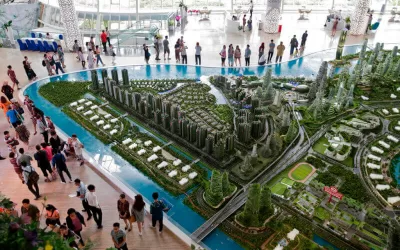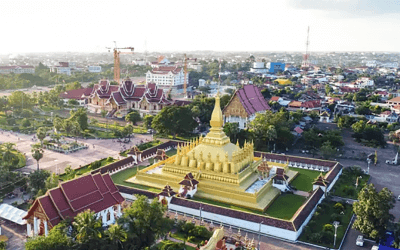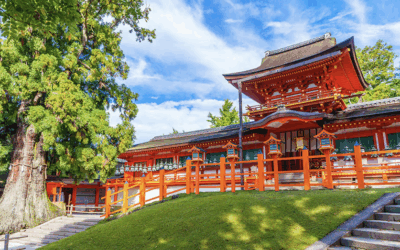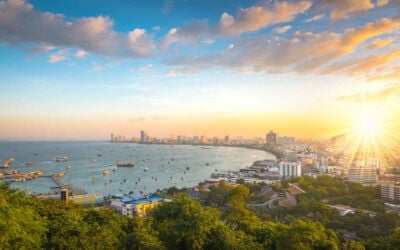Last updated May 12th, 2025.
Arguably, foreign property ownership in Malaysia is easier than anywhere else on the whole continent.
The Asian continent, by and large, doesn’t hold the sensibilities of allowing foreigners to own property on a freehold basis. This has admittedly been changing in recent decades, but it still has a long way to go.
Nowadays, in most Asian countries, it’s impossible to own property as a foreigner. So, if you were looking to diversify your investments into Asia, your options are limited in that regard.
But the enemy of ingenuity is the absence of limitation, and so we must look at all the choices.
And among the best available options is Malaysia, which offers straightforward property laws and an overall friendliness toward foreign buyers.
Malaysia admittedly doesn’t get as much attention as nearby Thailand, India, and China from a foreign property investment standpoint.
Although that’s part of the appeal, given that you can be part of a select few investors that can benefit from the absence of intense international demand driving all prices to unreasonable levels.
Below, we’ll discuss why buying property in Malaysia as a foreigner is among your best options in the area, along with what other benefits that owning property here will give you.
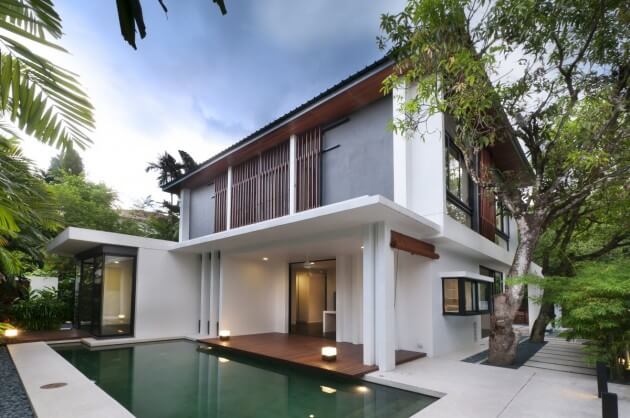
You can own land in Malaysia as a foreigner on a freehold basis. In fact, it’s one of very few countries in Southeast Asia where this is possible.
Foreigners Can Own Land in Malaysia
At this moment, you have plenty of choices when it comes to buying a condo in Southeast Asia as a foreigner.
There are plenty of countries in this region that will allow you ownership of such property. Yet the key you can also buy land as a foreigner.
Most of Southeast Asian governments will not allow you to purchase the underlying property and are only leasing you the land a structure sits on. It’s like a parking spot that your property sits on.
This is typically done as a lease that lasts for decades, which is usually easily renewable. But if the owner of the parking space – the government – wants your property out of its premises after the lease is up, there’s not much you can do.
Some investors are fine with this arrangement, but we would advise caution against this mindset. Property is an illiquid asset.
Thus, if your strategy relies on quickly being able to pivot to avoid any legal complications, that is a needlessly high risk and ultimately unsustainable state of affairs.
Instead, you should go where you have full ownership over the property rights associated with your real estate. Malaysia is one the world’s the easiest countries to buy property as a foreigner. And it’s certainly the least difficult place in Southeast Asia to own land.
Bear in mind though that there are still some protectionist restrictions in place. For the most part, they are sensible compromises that are done for good reasons.
For example, if a property is worth under RM500,000 (~US$125,000), it cannot be owned by foreign investors. In some states, this minimum price floor for foreign purchases is even double.
This is done to avoid the poor and growing middle-class of Malaysia having to contend with rising house costs and effectively keeps them from being squeezed out of their own communities.
Malaysia’s foreign investment policy effectively funnels international investor demand into the high-end property sector.
Overall, this is the sort of mindset that you’ll encounter across the country – Malaysia is open to foreign investment but still cautious in many ways.
There are even some areas designated as “Bumiputra only” – Bumiputra meaning ethnic, Muslim Malays. And foreigners are barred from owning agricultural properties as well.
Be that as it may, most properties that are likely to appreciate in the medium to long term are able to be bought by anyone.
Hence, the small concessions to be made are comparatively minor as there are investment opportunities to be found throughout the country in various asset classes, such as houses, townhomes, the ability to develop land, etc.
However, every state has different regulations, so it’s worth consulting a lawyer before attempting to buy property in Malaysia as a foreigner.
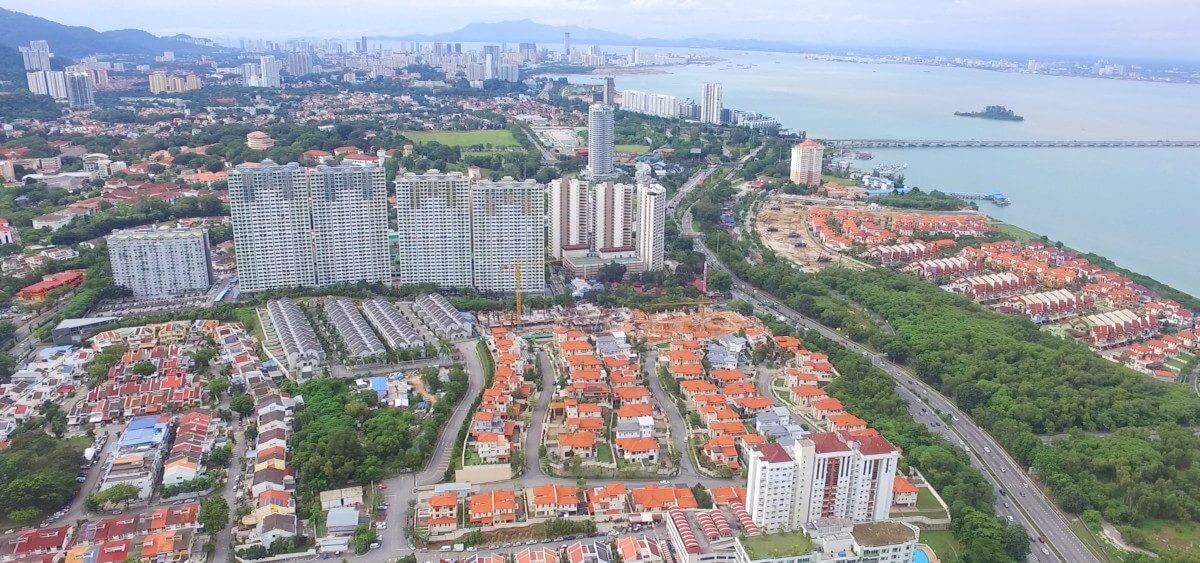
If you’re looking at long-term appreciation prospects, owning real estate in Penang is an option since there’s a scarcity of land here.
Buying Condos, Houses, and More
According to the IMF, the Malaysia’s economy is the fifth largest in Southeast Asia. Its labour productivity is considerably more developed than in adjacent countries, such as Thailand, Indonesia, the Philippines, and Vietnam.
Malaysia is primarily a fast-growing export-oriented economy, with a developing middle class and growing population. Furthermore, Malaysia has been on the receiving end of the capital flight from the Middle East.
It also has notable oil reserves and has overall business-oriented regulations. Yet, despite making good strides regarding societal development, Malaysian wages have lagged OECD developed standards.
In other words, while broad economic development has created new industries and led to the development of urban centers, the average person’s wellbeing has not kept up.
Occupancy rates are low in Malaysia as there is an oversupply of real estate. Nonetheless, purchasing power among locals hasn’t risen proportionally.
With an overabundance of choice, existing renters get their pick, which means rental yields are rather low at just 3% in Kuala Lumpur and Penang. In time, as the population and wages grow, this is likely to change.
For now though, Malaysia remains an option to get proportionally cheap property. That’s especially true compared to neighboring Singapore where a closet-sized room can cost you a lifetime of savings.
It’s worth mentioning that despite being business-friendly, Malaysia has steep taxes in some regards. Residents are charged a 20% flat rental income tax, while non-residents pay a 25% tax.
There are a few other taxes when selling a property, too. Most notable is the Real Property Gains Tax (RPGT), paid on 30% of the profit made if you sell property within the first five years of owning it. Then it’s a 10% tax on profit gained, regardless of how long you held the property.
Sales fees are lower for Malay citizens. The primary reason this is done is to protect its citizens from short-term speculatory bubbles. Most countries in Southeast Asia have a similar tax except for Cambodia.
MM2H Means Simple Visas and Low Tax
As you might have guessed, there are far better investment markets if you’re looking for rental yields or high currency appreciation rates. But foreign property ownership in Malaysia is a two-fold play.
Firstly, there’s the long-term potential of appreciation of the undervalued property due to the current glut of supply on the market. Secondly, Malaysia doesn’t charge any tax for foreign sourced income.
This means that if you use the Malaysia My Second Home (MM2H) program to gain a renewable 10-year visa in the country, you can effectively drop your tax obligations to close to 0% if you arrange everything properly.
The MM2H visa criteria vary on a number of factors, including age, and the government seems to prefer older retirees.
If you’re not above the age of 50 and are not earning a pension above RM10,000 (about $2,500) per month, you need to meet the following requirements to qualify:
- Must have bought a property in Malaysia worth at least RM600,000 (about $150,000)
- Need to show evidence of ownership and full payment of the property.
- Real estate must have been purchased within 5 years prior to the application for MM2H visa.
- Will need to place a fixed deposit in a Malaysia bank account valued at least RM150,000 ($40,000) if you’re aged under 50, or RM100,000 ($25,000) if aged over 50.
Should You Buy Property in Malaysia as a Foreigner?
If you’re looking for stellar immediate growth in a property market, there are likely better options out there besides Malaysia, including frontier markets like Cambodia and the Philippines.
Still, if you’re looking for an environment with good medium to long term prospects that can appreciate considerably while also being near some of the most desirable and visited tourist and business locations in the world, Malaysia is certainly worth considering.
Furthermore, there are the ancillary benefits such as reduced living costs and an immense tax burden reduction, assuming that your income is not derived locally.
Finally, as we noted, Malaysia is among the world’s easiest countries to buy property as a foreigner.
While Malaysia’s real estate market isn’t for everyone, it’s worth considering as a foreign investor who wants to own physical land in Asia – especially if your strategy is long-term capital appreciation.
FAQs: Foreign Property Ownership in Malaysia
Can Foreigners Buy Property in Malaysia?
Yes, foreigners can own condos, houses, and practically any other type in Malaysia on a freehold basis. It's one of Asia's easiest countries to own land.
Malaysia's only restrictions on foreign property ownership are heritage buildings, agricultural land, and low-cost housing.
How Much Does Real Estate in Malaysia Cost?
Housing costs in Malaysia vary widely based on location, building quality, and other factors.
With that said, in Kuala Lumpur or Penang, a good guideline is to expect about 20,000 ringgit (~$5,000) per square meter for a city-center project. You'll pay about half that price further out in the suburbs, and even less in Malaysia's smaller cities which are less popular among foreign buyers.
Can Foreigners Own Land in Malaysia?
Yes, foreigners can buy land in Malaysia as long as it's used for residential purposes.

